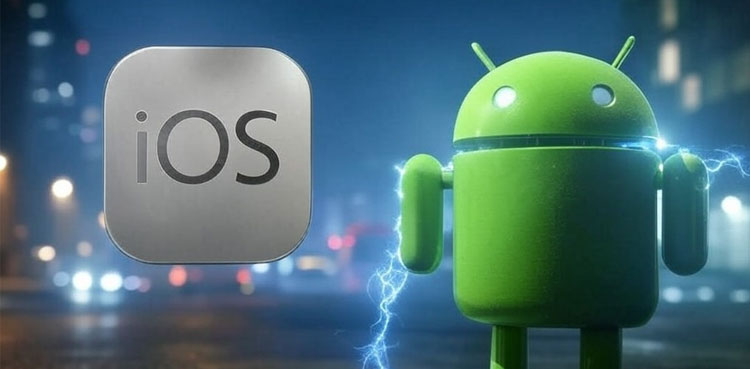
The battle between iOS and Android has been going on for over a decade, with passionate users on both sides defending their preferred operating system. Being the two dominating forces in the smartphone market, Apple‘s iOS and Google‘s Android offer two different experiences with their respective strengths and weaknesses.
But which one is really better? Let‘s break down the key factors to help you decide.
1. User Experience: Simplicity vs. Customization
iOS: Known for its sleek, intuitive design, iOS offers a seamless user experience. Apple’s tight control over hardware and software ensures smooth performance and a consistent interface across devices. It’s perfect for those who prioritize simplicity and ease of use.
Android: Android is, in a nutshell, customization. From home screen widgets to third-party app stores, Android gives users the option to personalize devices to a far greater extent than iOS. While this flexibility may sometimes lead to a less polished experience, at least on cheaper devices.
2. App Ecosystem: Quality vs. Quantity
iOS: Apple‘s App Store is famous for the quality of apps and the review process. Developers usually prefer iOS due to the well-off user base, which in turn gives more premium apps and games. In addition, apps are usually better optimized for iOS devices.
Android: While there are more apps available on the Google Play Store, many of them are free, and the quality of the apps is pretty sketchy, and sometimes not so well-optimized for so many different devices in the Android camp. On the other hand, Android offers to sideload apps from third-party vendors, which is a bit more open-ended.
3. Hardware: High-End vs. Selection
iOS: Here, the hardware and software are developed by the same company. Therefore it is tightly integrated system. Premium Build quality, Latest processor, long term software support, these are factors for which iPhones are known, but these cost a premium.
Android: Android is available in a variety of sizes, shapes, and price ranges, from very budget-friendly options to high-end flagships. Brands like Samsung, Google, and OnePlus bring innovation through foldable screens, high-refresh-rate displays, and advanced camera systems. This means there is always an Android phone that fits within any budget or preference.
4. Privacy and Security: Walled Garden vs. Open Playground
iOS: Apple has positioned itself as a leader in privacy with features such as App Tracking Transparency and on-device processing for Siri. The closed nature of iOS makes it more difficult for malicious apps to penetrate the system, thus providing a safer environment for users.
Android: Google has done a great job in securing Android, but the open nature of the OS makes it vulnerable to malware and security breaches. On the other hand, Android provides more transparency and control over app permissions, which appeals to privacy-conscious users.
5. Ecosystem Integration: Apple vs. Google
iOS: If you’re already invested in the Apple ecosystem—with a Mac, iPad, Apple Watch, or AirPods—iOS is a no-brainer. Features like AirDrop, Handoff, and iCloud sync make it easy to switch between devices seamlessly.
Android: Android plays well with Google services such as Gmail, Google Drive, and Google Photos. It also gets along well with a wide range of third-party devices and platforms, making it a versatile choice for those who prefer an open ecosystem.
6. Software Updates: Timely vs. Fragmented
iOS: Apple distributes software updates in a timely manner for all the supported devices; this means at least five years or more, ensuring the most recent features and security patches for users.
Android: In Android, it is somewhat uncertain when to expect software updates from the manufacturer or carrier. Even Google‘s Pixel devices update timely, while others may lag and leave users still on the old versions.
Which is better?
The outcome of the Android vs. iOS debate depends wholly on your criteria.
If your primary concerns were for a solid, secure and smooth experience together with high-range hardware, go for iOS. If you will need customization flexibility, variety Android will be much more suitable.
Both platforms have their merits, and the competition between them continues to drive innovation in the smartphone industry. Whether you’re Team iPhone or Team Android, one thing is clear: the battle for smartphone supremacy is far from over.
from Science and Technology News - Latest science and technology news https://ift.tt/M7Ti1fP



